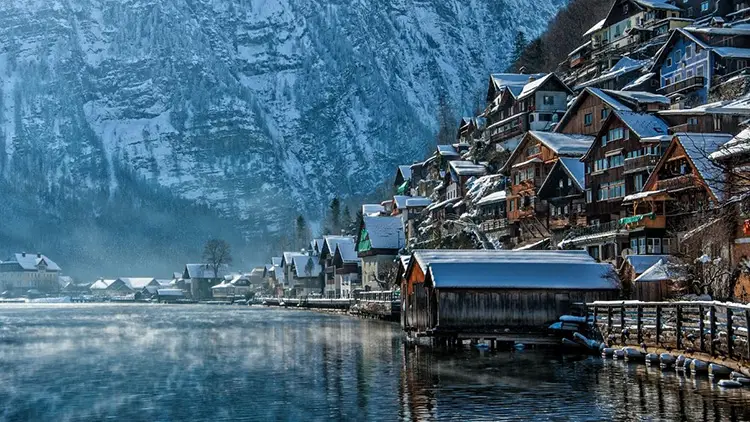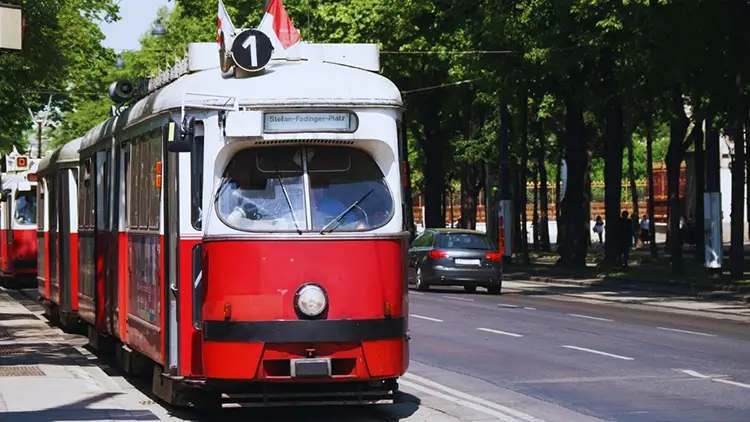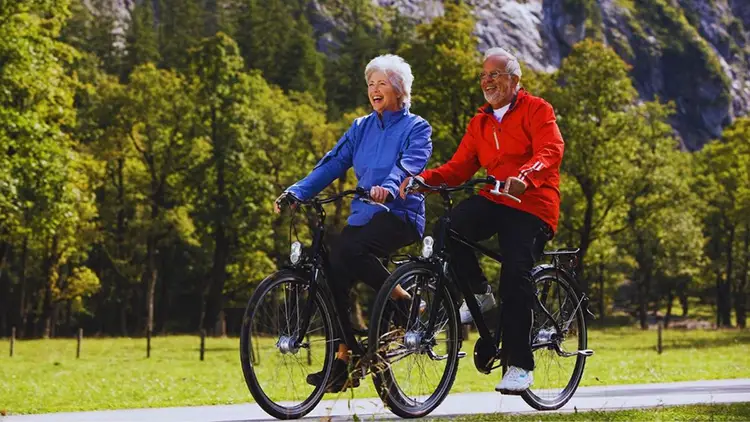As we get older, we find we are having to make new decisions regarding our lives, namely our retirement and where we will live once we have retired. Emigrating to a new country, or even just becoming a seasonal resident, can be a daunting task at any age but is particularly challenging as we reach our senior years. Long-term care for expats becomes a serious challenge.
Many countries outside the U.S. rely on family connections to provide care for loved ones. For expats with no familial roots in their country, they need to look at other options for help.
Austria is a wonderful country in which to retire. It has a multitude of advantages but one of its main disadvantages is that visitors claim the people are unfriendly to foreigners. In 2015, The Local reported that Austria had ranked as the 11th best expat destination despite the fact that locals are unfriendly to foreigners.
The same survey placed Austria in first place for health, safety and well-being. People commented that it was difficult to settle in Austria as the culture is very different and, if you are not a German speaker, it is difficult to communicate well and make friends. A 2019 survey regarding quality of life placed Austria second in the world after Switzerland.
We have reviewed the options long-term care options for expats in other articles as well. Specific to Europe, we’ve covered Czech Republic, France, Portugal, and Spain.
The Language Barrier
Most Austrians speak German although many other languages such as Croatian, Hungarian, Slovenian and Turkish are also spoken. English is widely spoken but has no official status. The further you get from the larger cities the less English is spoken. This language barrier could cause a small problem and may be the reason many expats say the Austrian people are not very friendly, but it could be seen as an opportunity to learn something new.
Enough Austrians speak English for you to get by without being fluent in German but if you are wanting to fit in and make friends with the locals it would be a good idea to put some effort into learning the local language.
Location and Climate
Austria is very well placed if you are wanting to travel and explore Europe. It is very central and is a short road trip or train ride or an easy flight to most European countries.
Austria’s climate is harsh in the winter and the grey winter months can seem to drag on forever. It is thus important to find an indoor hobby to see you through the winter. Finding a cozy coffee shop or enjoying a glass of red wine by the fire can also go a long way to seeing you through the long dreary days of winter. Unless, of course, you enjoy winter sports such as skiing and snowboarding. If this is the case, Austrian winters are a dream come true.
The warm, wet summer and spring months make up for the long winter. The Alps change from a postcard perfect white to a treasure of natural green beauty through which you can hike, bike, camp or simply enjoy the view in the warm weather. The daily temperatures can reach between 77’F and 95’F. One summer can be hot and the next can be rainy. In the Alpine region the days are warm, but the nights are chilly even in the middle of summer.
Citizenship and Visas
You can obtain a resident visa to retire to Austria if you can prove that you have enough money to live on. This includes housing and health insurance. The visa needs to be renewed every year.
Non-Eu pensioners can apply for a Settlement Permit. To receive this you need to provide evidence of health insurance, enough funds to live on, suitable accommodation and proficiency in German, or at least that you can understand enough German to get by.
Crime and Security
Austria has an extremely low crime rate and a high security of justice, which makes it an attractive destination in which to settle. Austria has one of the lowest crime rates in Europe, ranking 3rd safest county in the world, and violent crime is almost unheard of. The most common form of crime is pickpocketing in busy areas. So, as in any country, you need to be alert when in crowded places. Austria’s economic, social and political stability make it a secure place in which to retire and settle.
Cost of Living
Although working out the cost of living in a country and its comparison to other countries is not an exact science, various groups have come up with various formulas to estimate these differences. The cost of living in Austria is said to be 10-30% lower than neighboring France and Germany.
As with any country, the large cities are always more expensive to live in than smaller towns. Vienna, Salzburg and Innsbruck have a higher cost of living than smaller cities and towns.
According to My Life Elsewhere, Austria is 7.8% more expensive than the USA with restaurants being 37% higher and transport being 34% higher. Interestingly the monthly public transit card is cheaper in Austria than in the US. Groceries on the other hand are only 2% higher with most fruit and vegetables actually costing less in Austria than in the USA. If you are watching the pennies, it may be a good idea to eat in.
Although housing in Vienna is notoriously expensive, on average Austria’s housing in 16% lower than that in the United States.
Transportation in Austria
Public transport in Austria is excellent. Busses, metros and trams carry passengers efficiently and punctually within cities while the OBB Railjet carries travelers between cities and towns at an amazing speed of 143 miles per hour. The carriages are air-conditioned and provide free WIFI to ensure your trip is comfortable and convenient.
Pensioners can apply for a transit card at a discounted rate by simply providing their identification proving they are of the age to qualify. To receive pensioner benefits men must be over 65 and women over 60 years of age.
Health Care in Austria
The good health care system in Austria is another reason it is a destination of choice for older adults. The health care system is affordable and accessible. Health insurance is very easy to arrange and is compulsory for anybody living in Austria whether you are a student, a retiree or a stay at home parent. Residents of many countries may not be granted a visa without proof of medical insurance.
The health care, both private and public, is excellent and Austria has become a medical tourism destination because of it.
Most people in Austria are covered by public health insurance. If you are living in Austria and receiving a pension you have access to public health insurance. You also have access to public health insurance if your spouse is working or you are a dependent of somebody who is working.
The public health care is very good but you can choose to take out private health insurance if you wish. With private health insurance there is no waiting time, and you will have access to a larger choice of doctors, physicians and hospitals. Many people choose to have both private and public health insurance.
Elder Care in Austria
If you are living in or near Vienna, you can make use of the many pensionistenklubs. These senior citizens centers offer plenty of socializing and entertainment including dance events, board games, lectures and exercise regimes. Most operate every weekday afternoon and all is free of charge. This is a great place to make friends and meet new people.
Austria offers mobile social services which help older people to stay in their own homes as long as possible. This is provided by the government and extends into all towns and cities. Should you need such a service you can apply to your local authority office (Gemeindeamt), the District Commission (Bezirkshauptmannschaft) or, in cities, the municipal authorities. In Vienna you can also apply to the Sozialzentrum and the Social Vienna Fund. Independent Welfare Organizations such as Volkshilfe, Hilfswerk, the Red Cross and the Samariterbund also offer in home care.
A multitude of outpatient services have been introduced: home assistance, mobile provision of meals (‘meals on wheels’), nursing assistance, medical care, technical aids, rental of assisting appliances, etc. Unfortunately, there is still a shortage of these and the authorities continue in their efforts to provide the services for all who need it.
Nursing homes also offer holiday care to people who live with their families but are unable to take care of themselves if the family should go away for a holiday. These too are few and far between and there is a great need for more such establishments. There is also a pressing need for day care centers for seniors as approximately 80% of seniors who need care are cared for by their families in their homes. Senior day care centers would go a long way to alleviating pressure on family members and improving the day to day living of seniors.
Transitional care is offered to people who may need care in a home for a short time, such as after an operation or a fall. Once the person is fit enough to return home they do so.
24-hour home care is subsidized by the state. This consists of a non-family member who comes into the home of the person who needs care and helps them with things they can no longer do for themselves. The caregiver often lives in the home ensuring that help and care is available 24 hours of the day.
Due to the government’s focus on home care, more and more senior citizens are able to stay in their homes for longer. Nursing homes now cater to people in need of extreme care. Between 70% and 80% of people in nursing homes suffer from dementia or other psychiatric disorders.
There are many retirement residences, villages and complexes throughout Austria. The Senioren Residenz Josefstadt in Vienna consists of 54 apartments and a five-star restaurant where residents can enjoy a buffet breakfast every day and a variety of seasonal specialities for lunch and dinner. There is also a library and an exercise and therapy room. The residence caters for age-appropriate needs
Vienna is a particularly popular retiree destination as it offers so much in the way of entertainment and activities, not to mention its beauty. According to Cool Destinations these are the Top 10 Things for Seniors to do in Vienna. There are 63 assisted living facilities in and around Vienna. Yelp has done some research and has come up with the 10 Best Retirement Homes in Vienna.
Pensions in Austria
The retirement age in Austria is 65 for men and 60 for women. Over the next few years this difference in age will be evened out. Should a person retire before these ages there will be a penalty on their pension and if they should work beyond these years there will be a bonus. A minimum of 15 years needs to have been contributed in Austria to qualify for an Austrian pension. But pensions from your home country can be transferred to Austria.
If you are an EU or UK citizen, your pension can be paid directly into your Austrian bank account.
For non-Eu citizens there are several countries with which Austria has a social security agreement. The US and Canada have social security agreements with Austria. Expatica explains all the ins and outs of pension plans when moving abroad in their article Portable Retirement Planning for Expats.
Benefits for Pensioners
Austria is a country that respects its older population and there are many benefits and perks available to them. The senior travel discount allows anyone above the age of 65 to travel on Austrian trains at a discounted rate. From as little as 29 Euros per year, you can purchase a travel card.
All you need is to present your identification to prove your age. Most bus companies and some hotels and entertainment also offer pensioners discounts making traveling around Austria as a senior citizen not only pleasurable but affordable too.
Further Reading
Want to know more about Austria’s culture, places of interest, and destinations? Standard travel books can help. Here are a few of the most popular:
- Le Nevez, Catherine (Author)
- English (Publication Language)
- Fodor's Travel Guides (Author)
- English (Publication Language)







